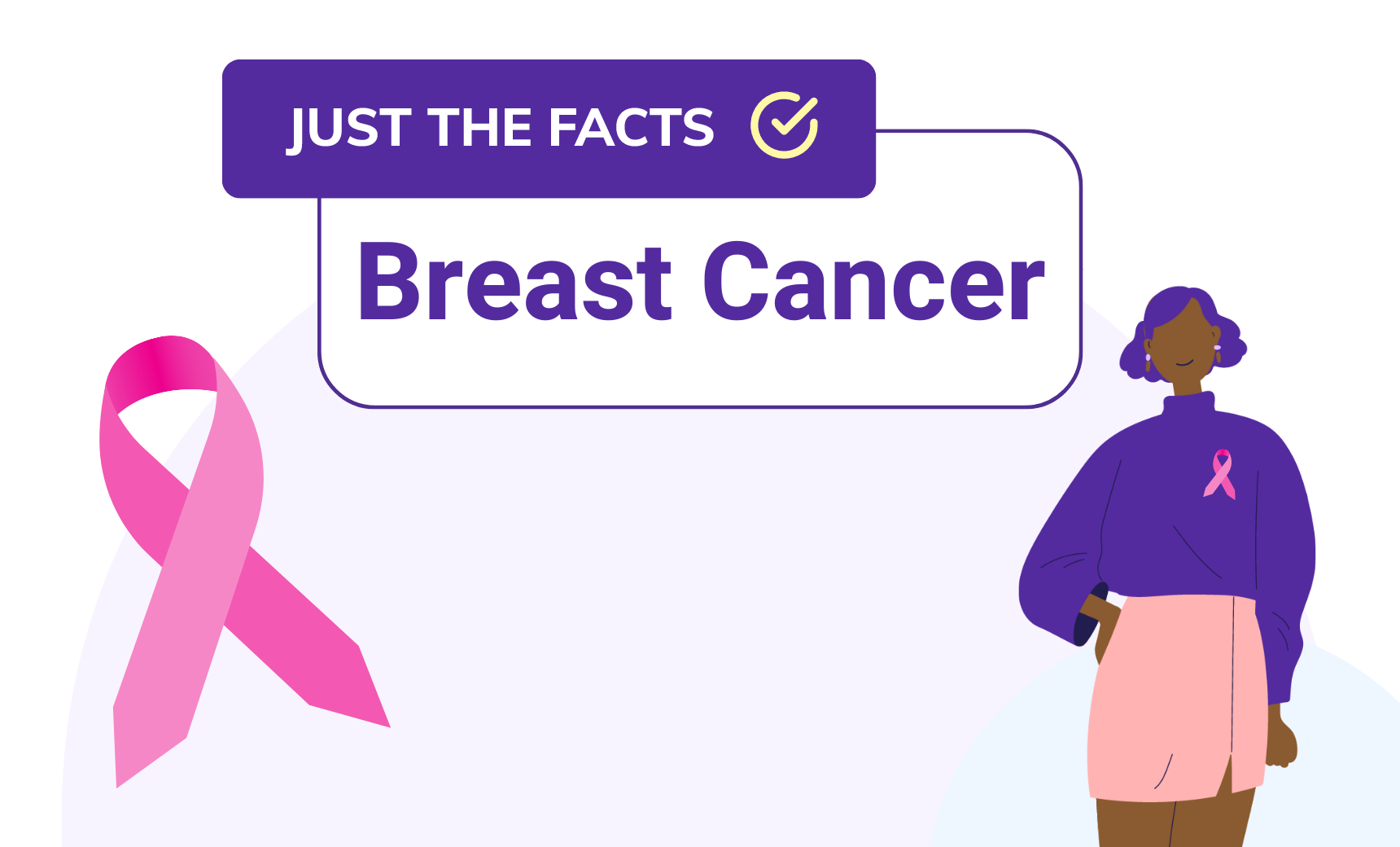BRCA1 & BRCA2: Your Questions Answered
Receiving news that you need to undergo testing for a BRCA 1 or BRCA 2 gene mutation can be extremely upsetting, especially given the potentially serious and far-reaching repercussions of this genetic mutation.
However, as is the case with many difficult subjects, there is a lot of misinformation out there that can lead to unnecessary worry. Your best step is to remain calm and get the facts before causing alarm for your or your family members.
What is the BRCA Gene Test?
The BRCA Gene Test is a blood test that identifies harmful changes (mutations) in either one of the two breast cancer susceptibility genes—BRCA 1 and BRCA 2—by analyzing your DNA.
What are BRCA1 & BRCA2 Genes?
BRCA 1 and BRCA 2 genes produce tumor suppressor proteins that function to help repair damaged DNA, and ensure the stability of the cell’s genetic material. When one of these genes is mutated, the suppressor proteins may not be formed properly, which can lead to DNA damage and further genetic alterations that can eventually lead to cancer.
How does inheritance impact BRCA 1 & BRCA 2?
The BRCA 1 and BRCA 2 gene mutations are inherited from either the mother or father. Each child of a parent who carries the mutation has a 50 percent chance of inheriting it, the effects of which are seen even when the second copy of the gene is normal. This is more common in women, but can affect both men and women.
Who should get tested for BRCA 1 & BRCA 2?
Unlike other routine blood test, BRCA 1 & BRCA 2 Gene Tests are only given out under certain specific circumstances, such as a medical history that indicates the potential for a mutation in the individual, or when the family history is indicative of a potential mutation. Generally this testing takes place in adulthood, as those with a family history are not likely to develop related cancers as children. According to the Mayo Clinic, in cases where the suspected mutation is based on something other than hereditary factors, patients are tested when they experience breast cancer before age 50, have cancer in both breasts, have two or more primary types of BRCA 1 or BRCA 2 related cancers in a single family member or within the family as a whole (i.e. breast cancer and ovarian cancer), experience cases of male breast cancer, or are of Ashkenazi Jewish ethnicity.
What does the presence of a mutation mean for my health?
BRCA 1 and BRCA 2 gene mutations, specifically those that are inherited, are linked to breast cancer, ovarian cancer, and several other types of cancer. The National Cancer Institute indicates, “together BRCA 1 and BRCA 2 mutations account for about 20 to 25 percent of hereditary breast cancers and about 5 to 10 percent of all breast cancers. In addition, mutations in BRCA 1 and BRCA 2 account for around 15 percent of ovarian cancers overall. Breast and ovarian cancers associated with BRCA 1 and BRCA 2 mutations tend to develop at younger ages than their nonhereditary counterparts.”
Why is it important to get tested?
Knowing your risks for certain types of cancer is really a very great advantage in the scheme of things. If you are alerted to the potential that you may be more inclined to certain types of cancer, your doctor may be able to take you through some preventative measures to limit your chances of being diagnosed. At the very least, genetic testing allows for greater awareness, and the ability to look out for signs and symptoms that allow early detection and more successful treatment.
While a request for BRCA 1 and BRCA 2 testing might not feel like good news, knowing it’s potential to inform and further educate you about your genetics is a great benefit—for you and your family. If you feel as though you might be a candidate, take the necessary steps to get more information from your doctor.
LabFinder is a no-cost, online platform for people to easily schedule their medical tests and view results securely. The LabFinder team is passionate about improving the ‘patient and doctor experience’ through better communication, reduce out-of-pocket expenses and making everyone know more about their own medical tests. The mission of LabFinder is simple: we want to be solution to you and get you the test results you deserve so you can make right choices about your health.







LabFinder Team
The LabFinder Editorial Team is behind The Illuminator and The Insider, LabFinder’s consumer and business blogs.
Dr.Robert Segal
Dr. Segal is CEO and co-founder of LabFinder, as well as a board-certified cardiologist. He began practicing medicine in 2002 and has founded several businesses, including Medical Offices of Manhattan and Manhattan Cardiology.